Things are heating up...
5-way dwarf apple
Apple along sidewalk that John has been rehabbing for a few years
Columnar apple (Golden Delicious)
Iris
Lilac and Camellia tunnel
Flowering kale
Borage
Calendula
Clover
Things are heating up...

5-way dwarf apple

Apple along sidewalk that John has been rehabbing for a few years

Columnar apple (Golden Delicious)
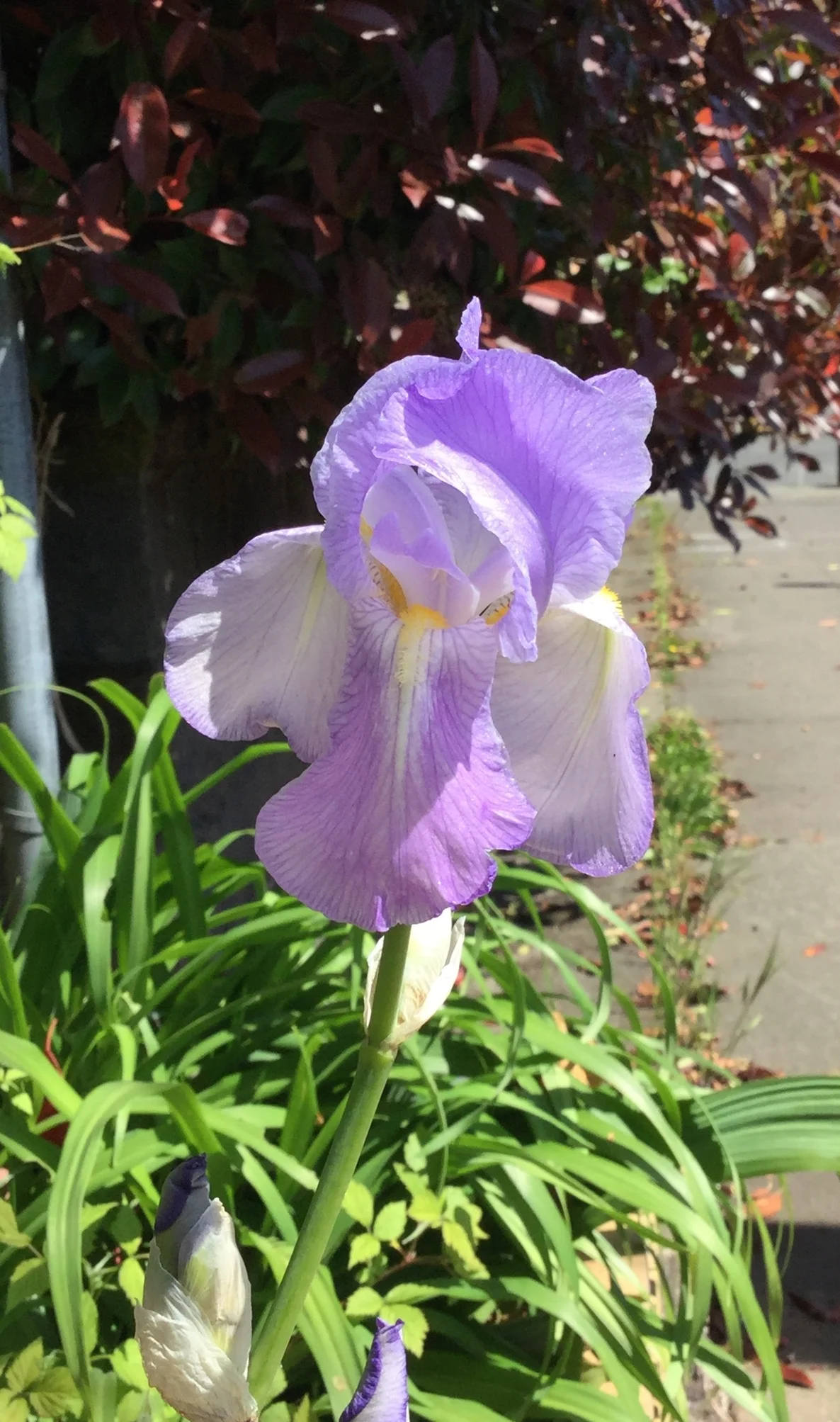
Iris
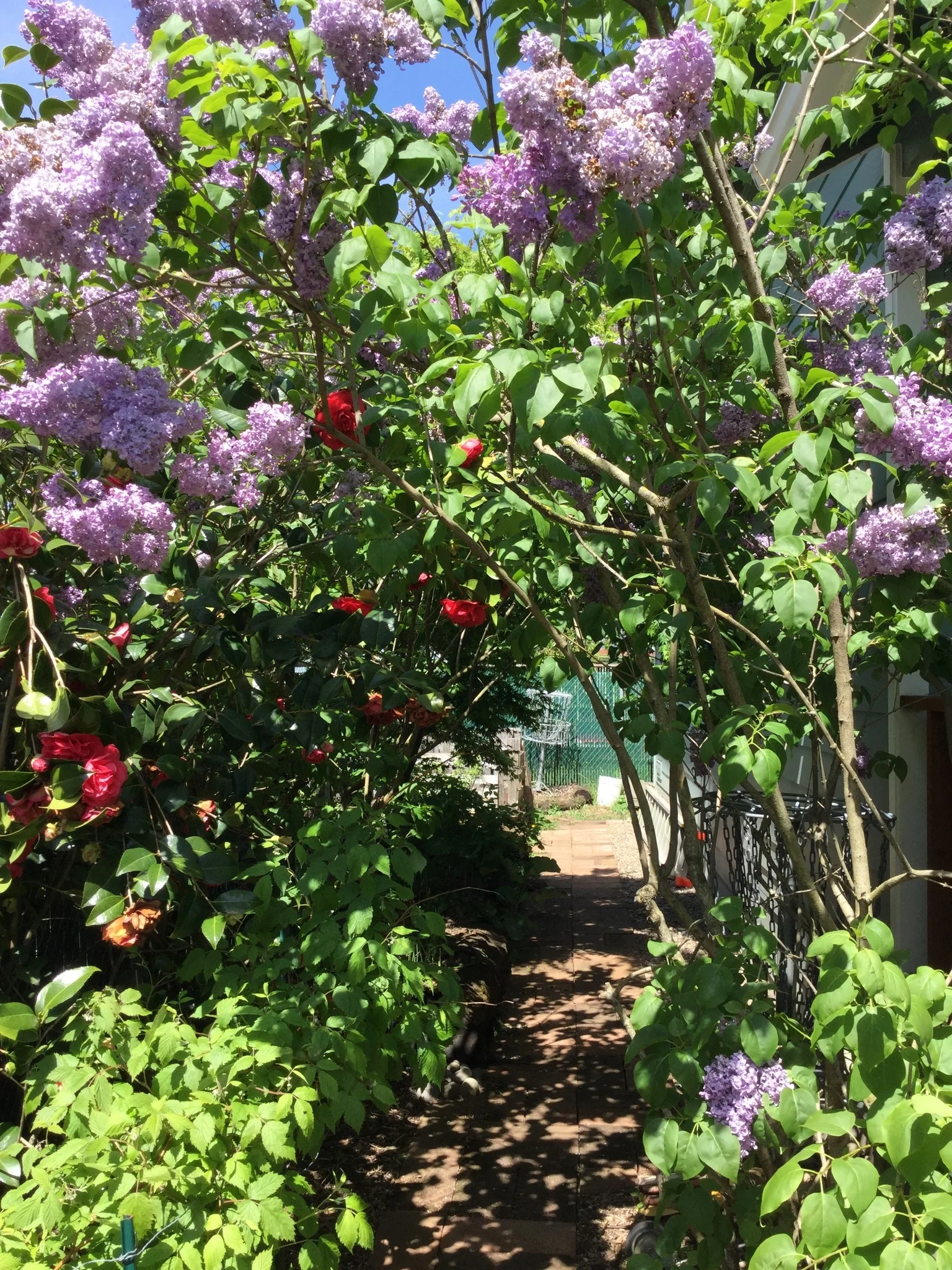
Lilac and Camellia tunnel
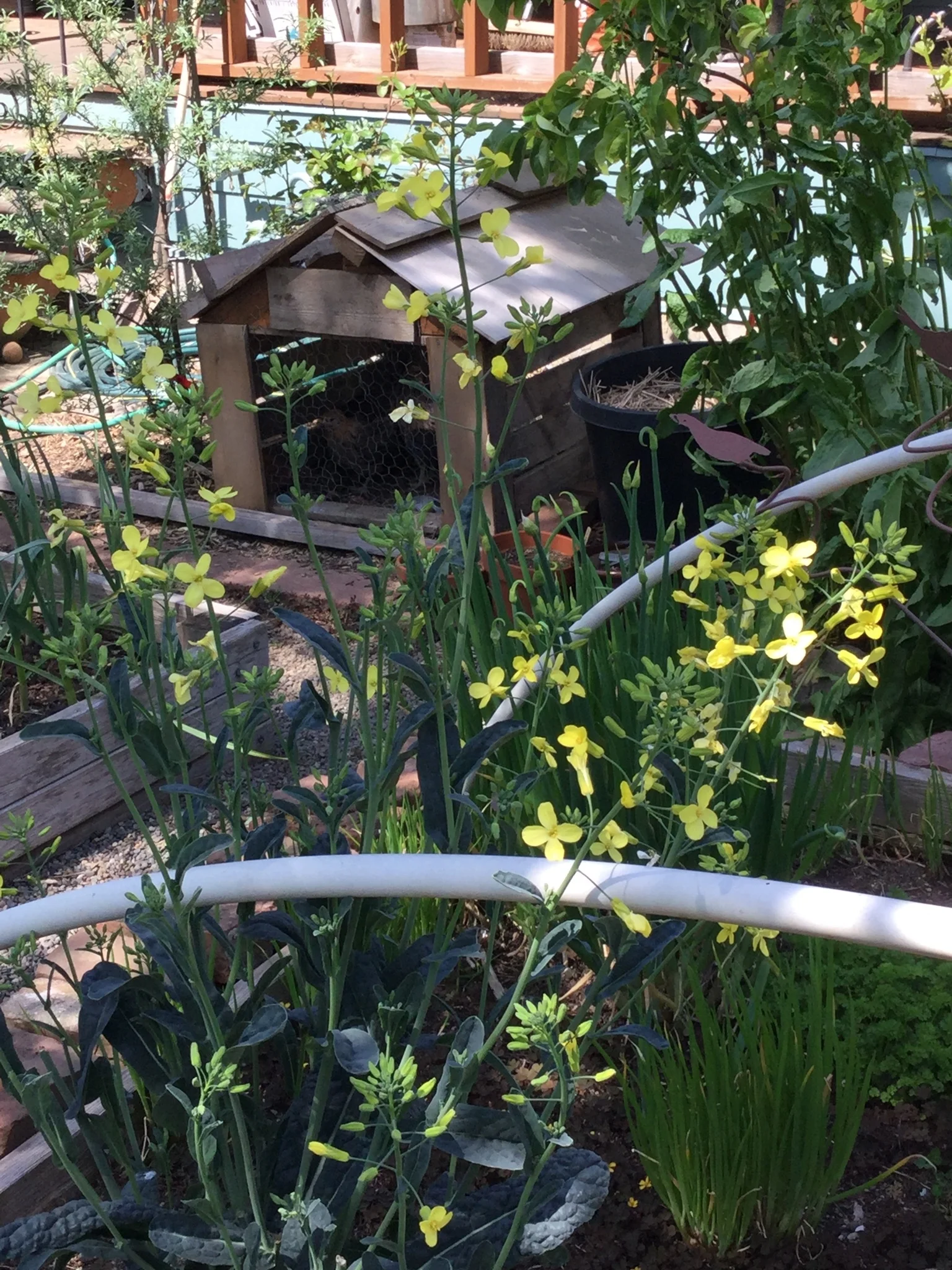
Flowering kale
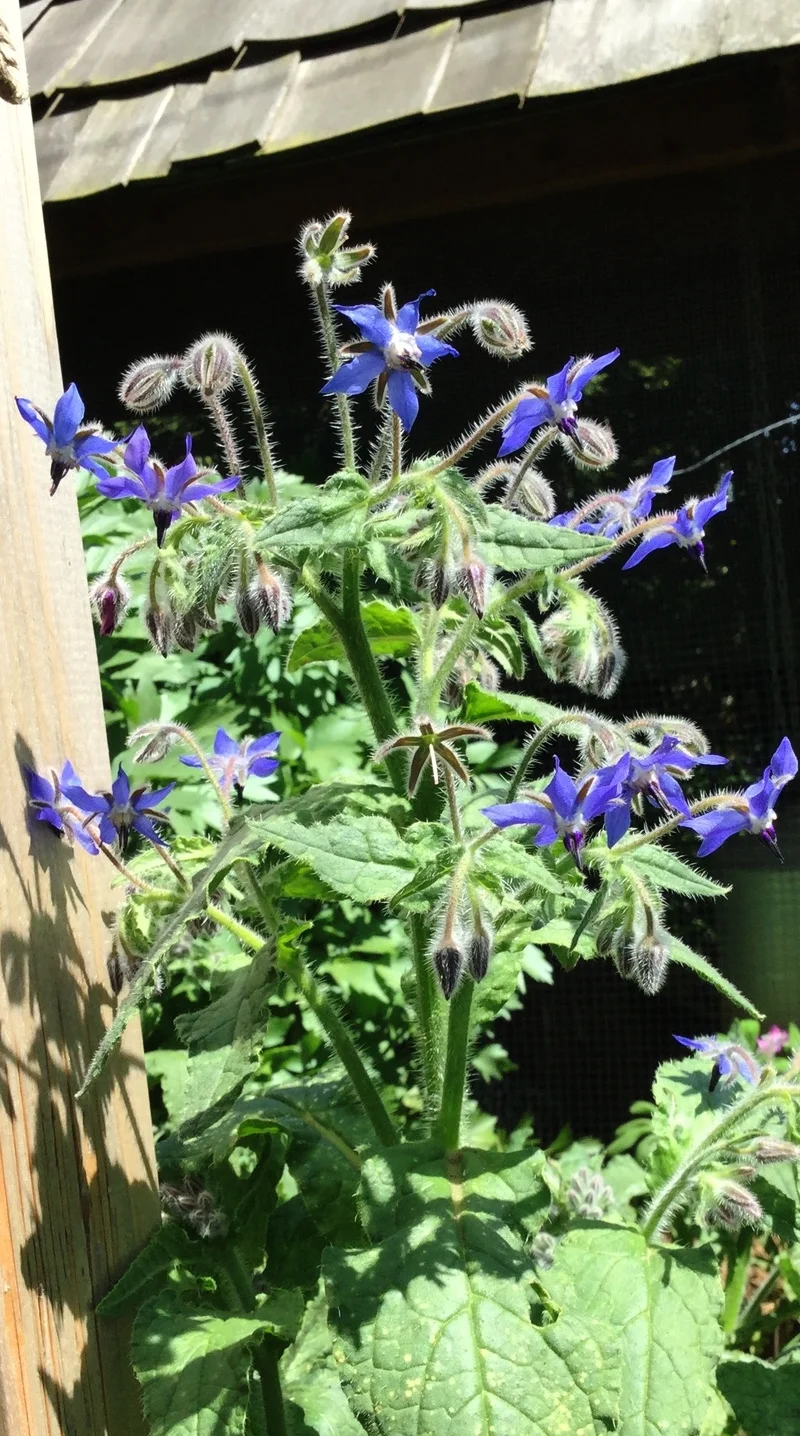
Borage

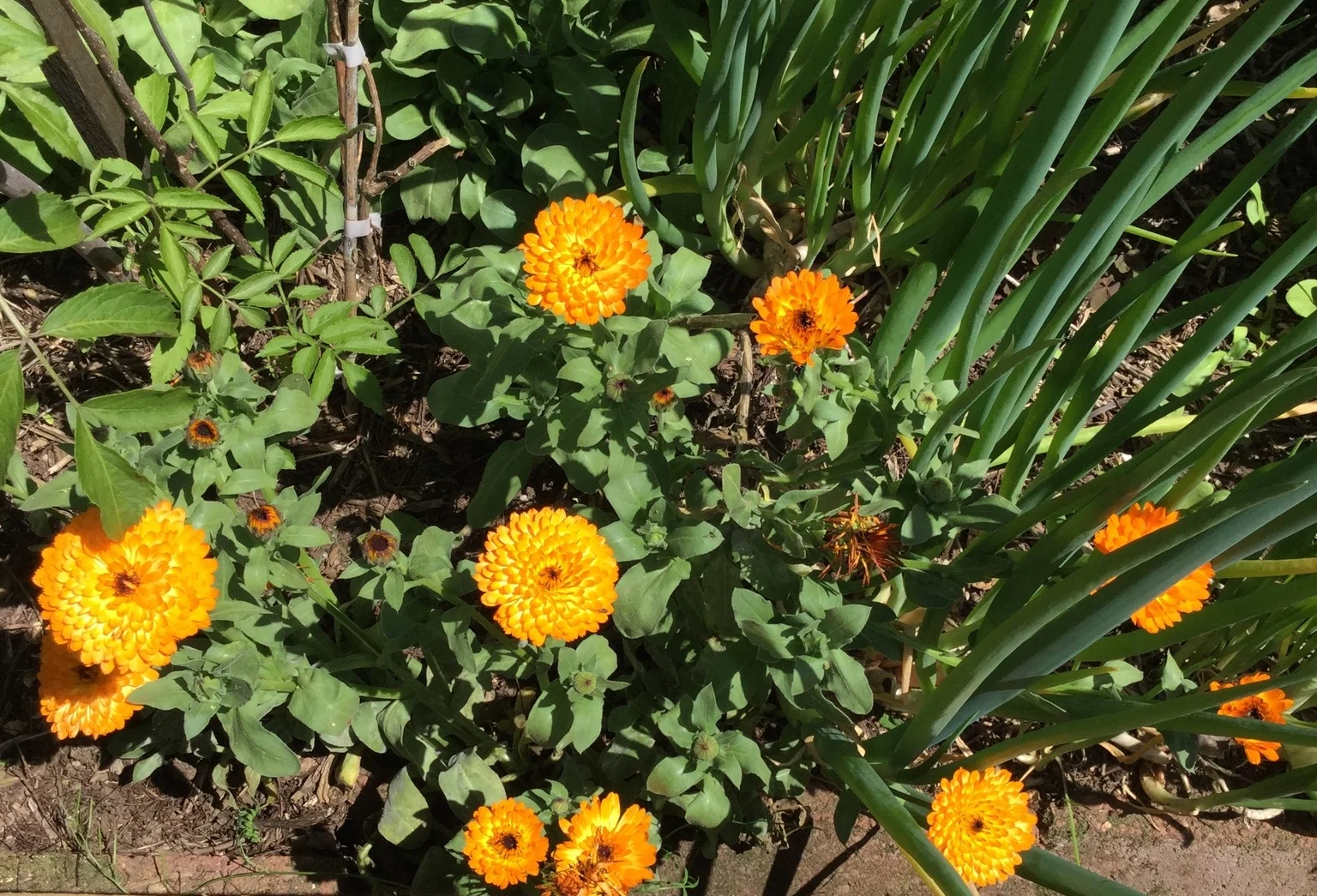
Calendula
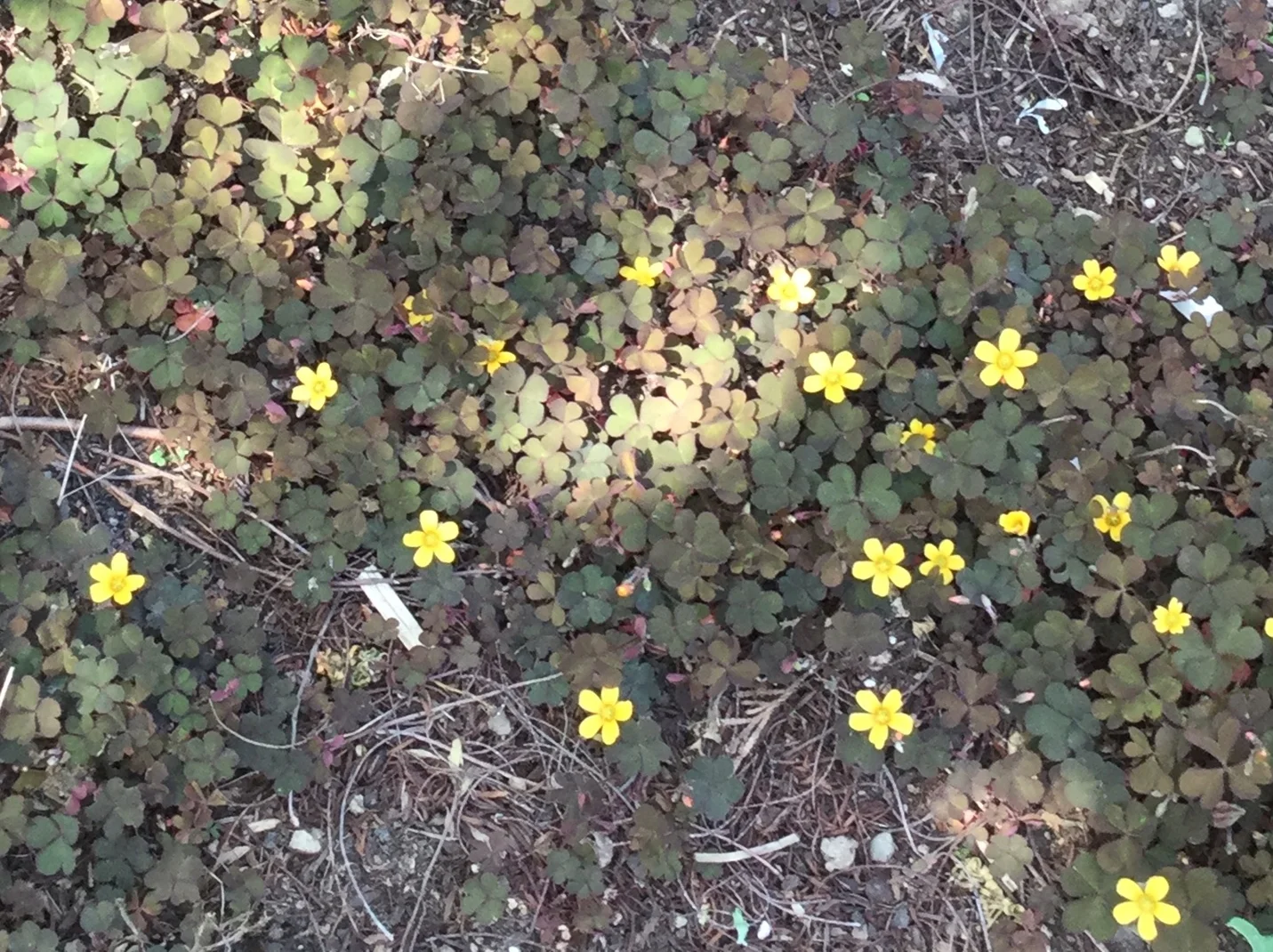
Clover
Naming your chickens is one of the parts of urban homesteading that really connects you to an animal that lays eggs and creates manure for you. The question has always been for us, could you eat an animal that you named? Initially, it seemed like the choice needed to be made early on.

The heretofore unnamed Spotted Sussex, 2 Americauna and Welsummer pullets in a chicken tractor made out of an old bookcase.
When first researching chickens the draw was to get good layers and good meat birds. Amelia and Muggsy, our 5 year old Barred Rock and Australorp hens, are definitely good layers, and as you can see below, pretty meaty birds. One of the thoughts when picking their breeds was when they stopped laying, they could end up as chicken stew. Admittedly, we get a lot of joy from them being alive, but know that we do not have an unlimited amount of space for new chickens.

Amelia and Muggsy eyeing me while making a run for the big doorway of the chicken coop. As you can see, Delaware has already escaped per usual.
Due to a number of factors, mostly our love for the birds, Amelia and Muggsy are not destined to end up stew birds in our yard. Once there laying days are over, they will likely eat, roost, scratch, cluck and poop their way into, what we hope, is a ripe old age. Is this sustainable? Or regenerative?
It depends. If everyone took good care of their chickens, we as humans stopped eating chickens, and they all lived too a ripe old age, we as a society would probably have too many Amelias and Muggsys running around. It would be harder to contain fowl based diseases, and no matter how hygenic the setup, we would probably have some serious issues (like way too many roosters). On the other wing, we have a huge amount of middle ground between where we are now, and the world of all chickens being pets.
Is it still worth it to own chickens knowing that enjoying them for their eggs, manure and hi-jinks might not be the MOST regenerative use of the animal? To me this seems like an obvious case of letting the perfect be the enemy of the good. We still have a chance to change this strategy later if we have too many chickens, which is why we hope to implement strategies that are regenerative AND adaptable.
We finally are getting some warmer days in Portland.


The garden is bursting and we are trying to fill in some of the gaps on our west side food forest. Note that the west side is delineated not by Burnside, but by our sidewalk which not so symmetrically bisects the yard.

We filled in the understory with some oxalis, bleeding heart and gooseberry. These supplement the sage, strawberry, high and lowbush blueberries, rhubarb, and rosemary that currently make up the understory of our golden plum tree.
As the biweekly bloom update has highlighted, the flower situation is getting to be amazing.





We have a Delaware chicken. She is our rebel hen. She represents her breed with such vigor and vitality, and thus is named Delaware.
In some ways she is the spirit animal for our yard. She doesn't really pay any attention to the other chickens enforcing the pecking order, she just moves past them and keeps her own council; digging epic holes with big, long kicks, and foraging voraciously.
Delaware lives her best life everyday. No hen ennui. No wondering why none of the other hens don't come down at night to check out what is making a noise outside the coop. When I dig a hole in the yard, she seems to be sure it is for her to better ravage the subsoil critter population, and jumps under my shovel trying to box me out for the tastiest grub.
Does Delaware often look like a dirty seagull?

You bet.
Is she a pain in the butt to keep under control?
Oh yeah.
Does she have a mild death wish for an animal that is basically been bred to be prey for everything?
Definitely.

Might we all be so focused on living our best life.
The cool days and rain are still persistent, but quite a few new blooms have appeared.

Camellias

Lilacs

Honeyberry

Red currant
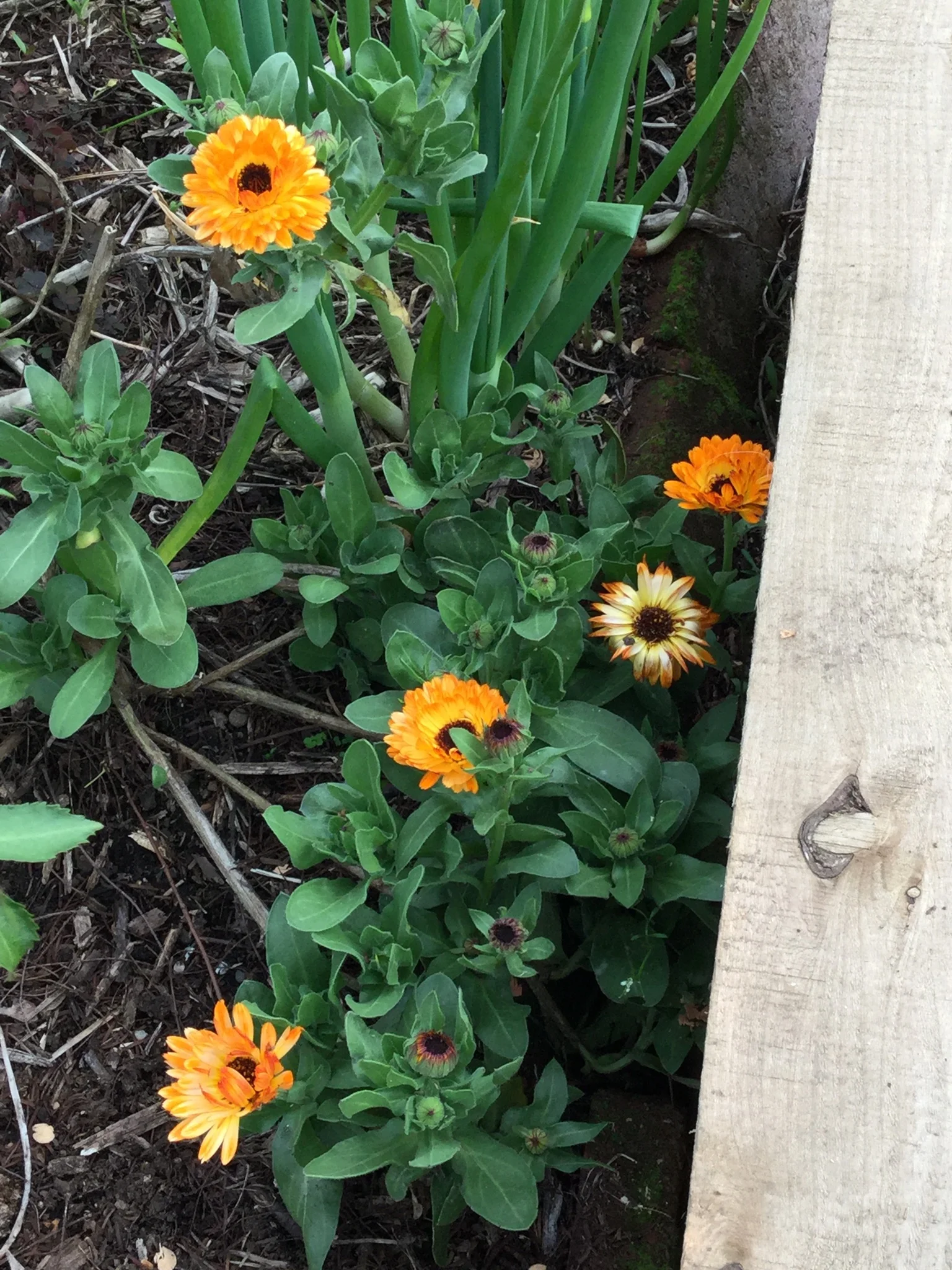
Calendula

Sour cherry

Strawberries

Bleeding heart

Good old Dandelions (which we let grow for breaking up poor soil and for chicken treats)

Grape hyacinth